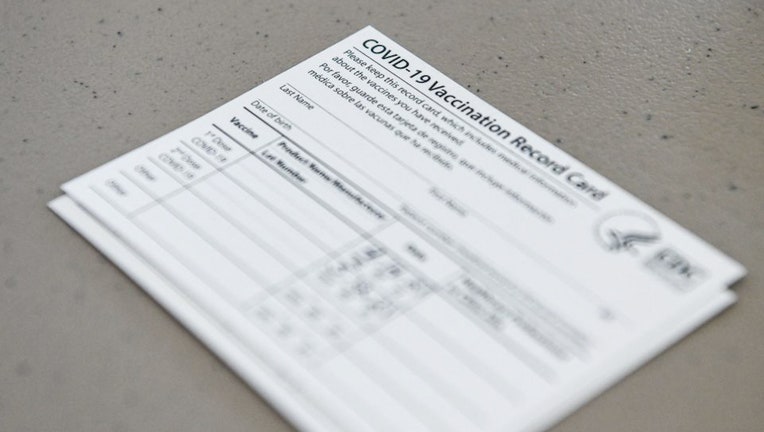US won't implement COVID-19 vaccine passport, White House insists

FILE - A Covid-19 vaccine record card is shown in a file image. (CHANDAN KHANNA/AFP via Getty Images)
The White House maintained that the federal government will not support a system requiring Americans to carry a so-called "vaccine passport," while suggesting the matter will be left to the private sector amid the new guidance on masks.
The Centers for Disease Control and Prevention issued new mask guidance last week, which says fully vaccinated individuals are not required to wear masks indoors or outdoors, or physically distance. The CDC, though, still advises that fully vaccinated individuals wear masks while in crowded indoor settings, such as while riding public transportation and in hospitals, prisons and homeless shelters.
The new guidance, though, has raised questions on how an individual can prove they are fully vaccinated, and therefore, not required to wear a mask.
White House press secretary Jen Psaki on Monday during a press briefing was asked whether the government would implement a "vaccine passport" system.
"It has not changed our view that the federal government will not be playing that role," Psaki said. "The private sector may, and it may prompt the private sector moving forward on actions, which is where we think it is appropriately situated."
Psaki, last month, said the White House would not support vaccine passports, amid privacy concerns, and as some argued that mandating passports could speed the reopening of travel and the economy.
"The government is not now, nor will we be, supporting a system that requires Americans to carry a credential," Psaki said in April.
During the briefing Monday, though, Psaki defended the CDC’s new guidance, saying that it "provides information to the public about what they can do to be safe."
"Wear a mask if you are not vaccinated, that applies to kids," Psaki said. "If you are vaccinated, you no longer need to wear a mask."
Psaki added that the guidance "gives people the information and the power to be able to protect themselves."
"We know people are digesting this, we’ve all been wearing masks for 14 months," she said. "Different companies, different organizations, different communities are going to implement based on a range of factors, including vaccination levels, cases – we should all respect that."

